It’s less than a month until Costume College 2018, and my instagram and facebook feeds are full of people panic-sewing for the event. I’m not going this year, but all the excitement has reminded me of the talks I did last year, and how I’ve never put most of that information online.
In a timely coincidence, a number of people have asked me recently what my favourite Edwardian & WWI era patterns are, and how I built my wardrobe for my Fortnight in 1916 living-history project.

One of my talks at Costume College last year was ‘The Great War Wardrobe‘: an in-depth exploration of WWI era home-front fashion, along with a guide on how to build a complete wardrobe from the period. I’m still working out how to turn the fashion history side of the class into workable blog posts, but will (hopefully) get those sorted and polished soon.
For now, here is a quick series on where to get patterns to make a 1910s (with a focus on 1914-19) era wardrobe.
Other posts in the series include:
The patterns I’ve included here are from pattern companies I’ve made items from, or have helped students or friends make items from, and can recommend on that basis.
I have not included pattern companies that I do not recommend, or pattern companies I have seen or tested in any way. I did not include patterns that are essentially modern blocks updated with a period aesthetic: I find that they rarely give the correct look.
Today’s post is all about your 1910s unders – because every good impression starts with your foundations. My Fortnight in 1916 really demonstrated how much your undergarments change how you stand, and move in your garments, and think about your personal space, and movements, so I really, really recommend making the proper underthings to achieve an accurate impression.
For your WWI wardrobe, first of all, of course you need a corset:
Corsets:
- Scroop Patterns: Rilla Corset (1913-1921):
- Truly Victorian TVE13: 1913 Corset Pattern
For more on what you’re looking to achieve with your corset, check out my series on Body Ideals & Corsetry 1913-1921
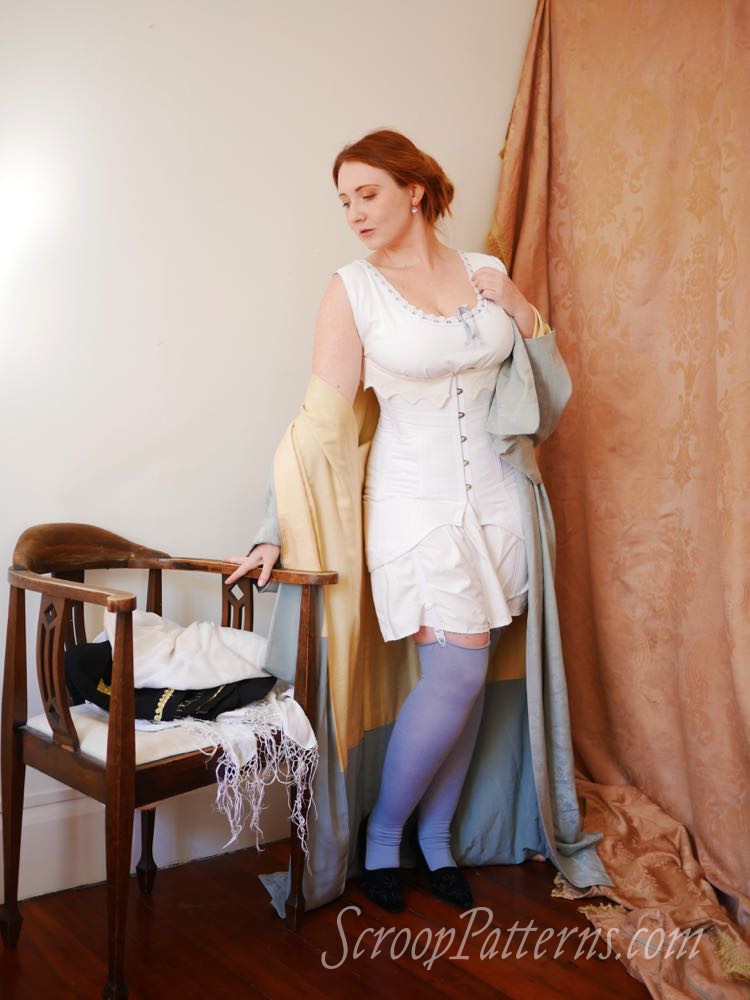
Under your corset, you’ll need some form of undergarments to protect the corset from you, and you from the corset:
Under the Corset:
Multi Sized:
- Truly Victorian: TVE02 1900s underwear: Slightly early for the period, and best if you are doing an impression of an older woman, whose style might not be so up-to-date.
- Wearing History: Circa 1917 Combination Underwear & Chemise This is the pattern I used for all of my Fortnight in 1916 undergarments
Single Sized:
See also Wearing History’s excellent research into knit undergarments in the Edwardian era.
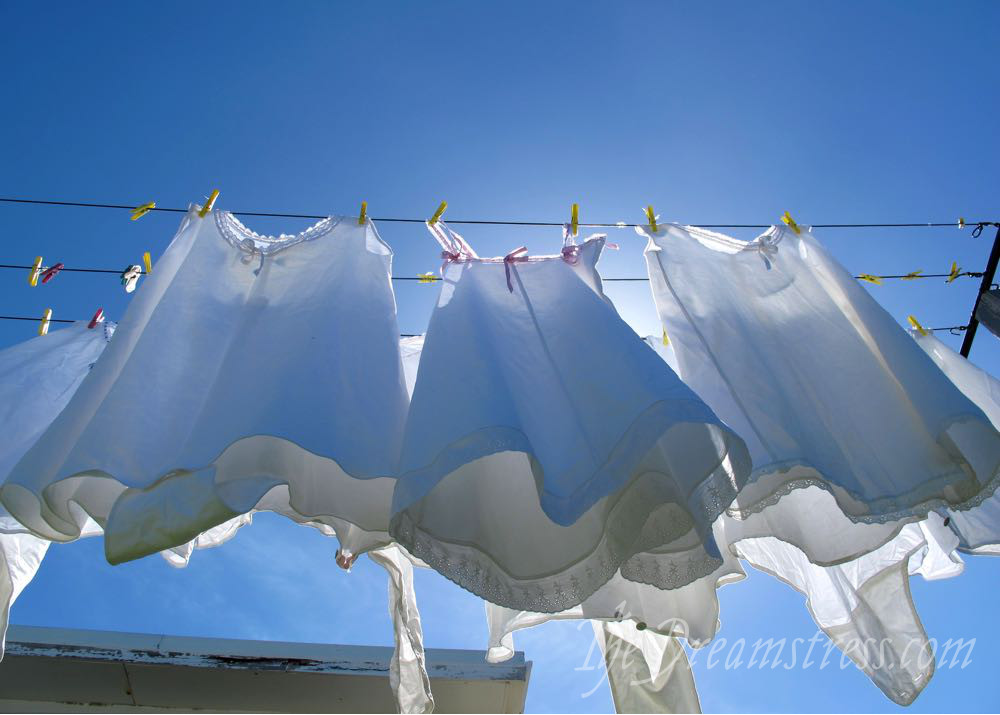
Over the Corset:
Multi Sized:
- Folkwear: Edwardian Underthings. Slightly early for the period, and best if you are doing an impression of an older woman, whose style might not be so up-to-date. Shortened, the petticoat is suitable for 1915-17 as well. I’m not sure the camisole is entirely accurate in cut.
- Scroop Patterns: Ettie Petticoat. Includes four views covering 1890-1920, and instructions on period decorations techniques, like insertion lace.
- Truly Victorian: Late Edwardian Petticoat Pattern Suitable for the long, slim skirts of 1909-14
- Wearing History: 1910s corset cover or camisole This is the pattern I used for all of my Fortnight in 1916 camisoles
- Wearing History: 1910s Combination Underwear
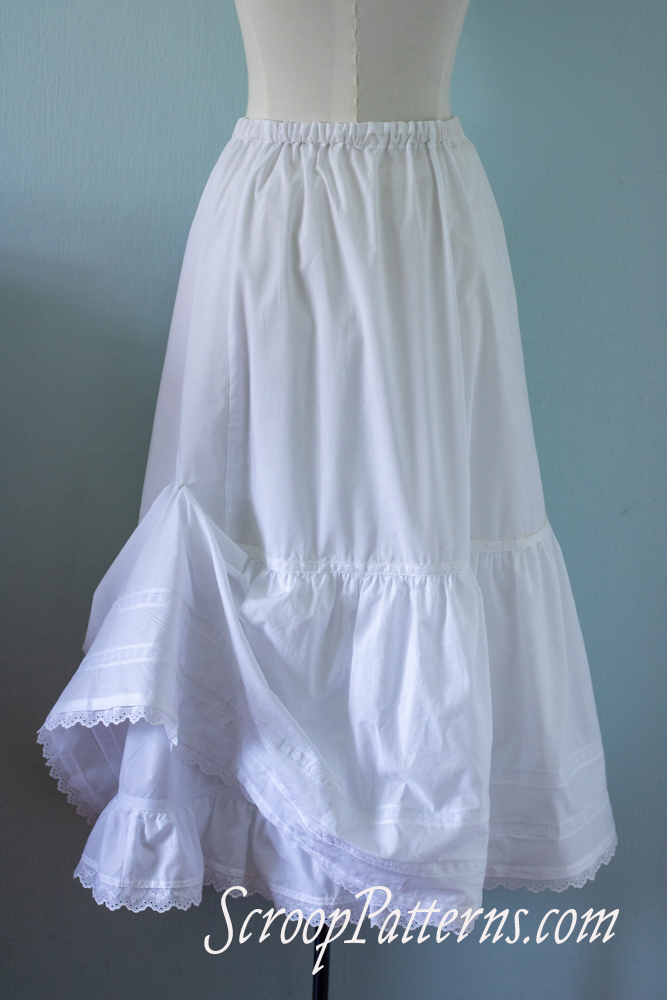
The Scroop Patterns Ettie Petticoat View C scrooppatterns.com
Negligee:
Single Sized
Because every well-dressed WWI era lady needs an elegant robe or negligee to swan about the house in!
Books:
There are also lots of books that include scaled patterns for corsets and other undergarments from this era (well, primarily corsets). I recommend:
- McNealy, Marion. Corset Cutting & Making (this book is amazing)
- Salen, Jill. Corsetmaking: Historical Patterns & Techniques
- Waugh, Nora. Corsets & Crinolines
I’ll be putting up the rest of my guide over the next two weeks!
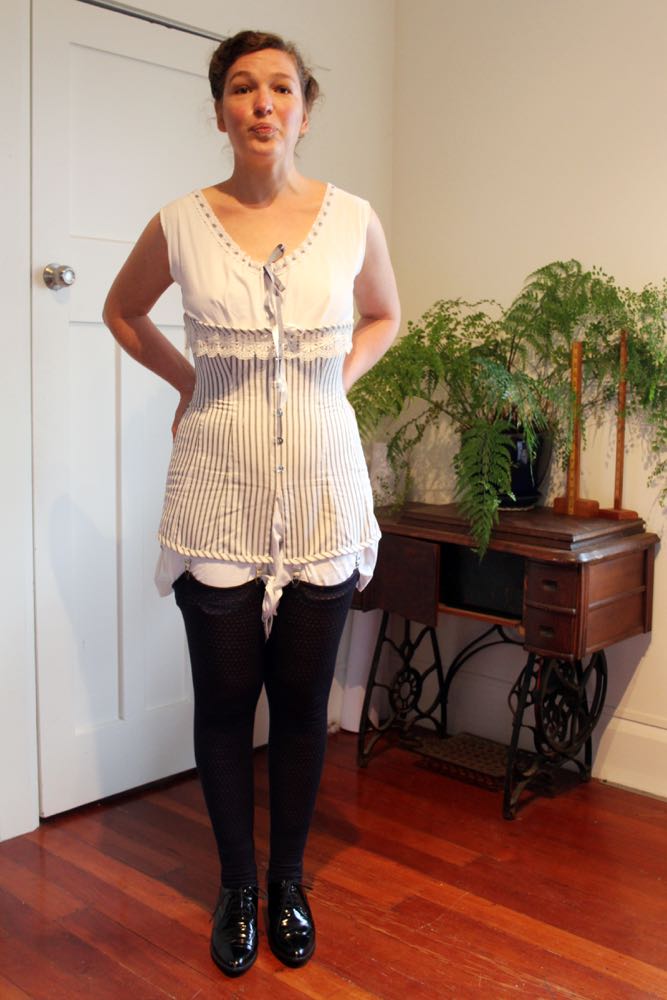
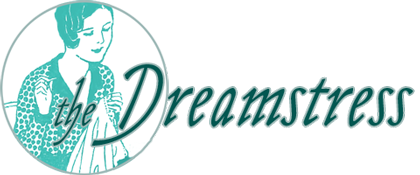
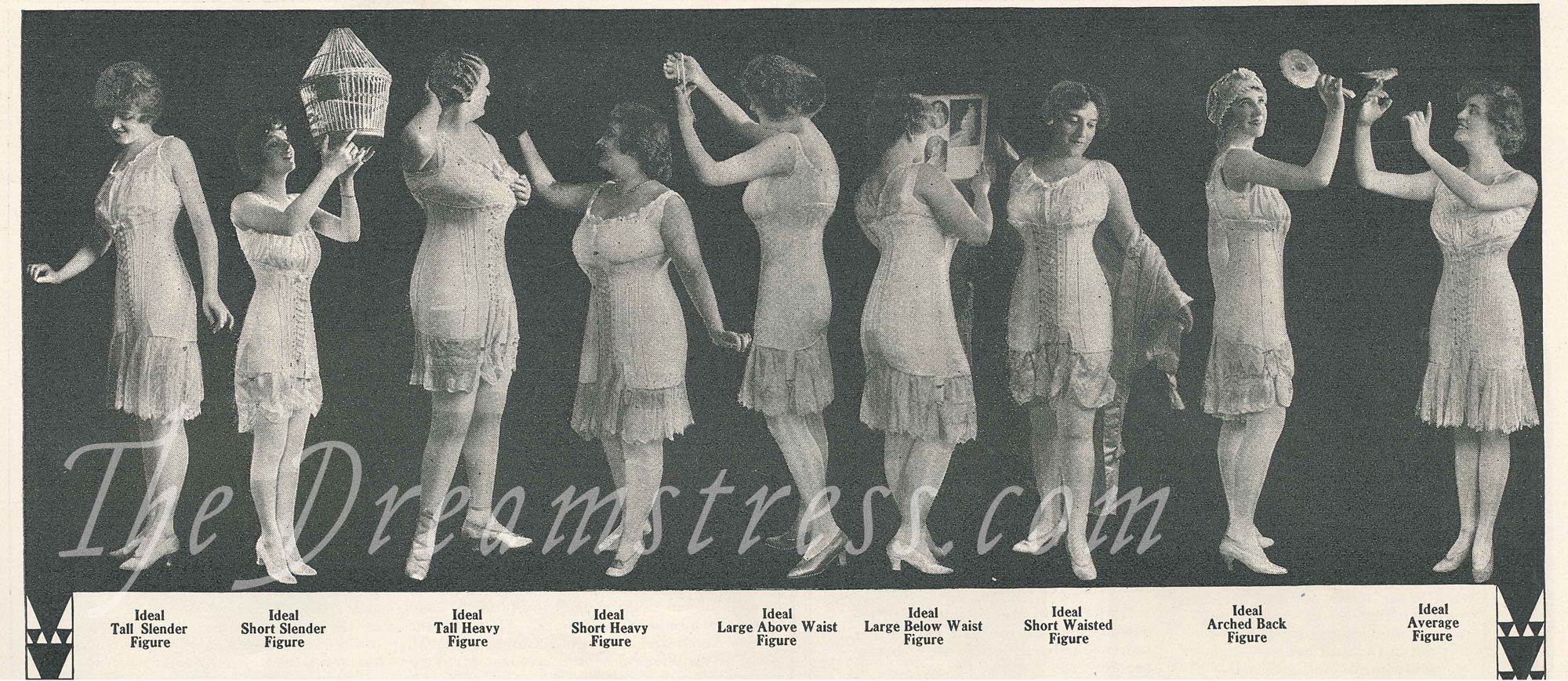
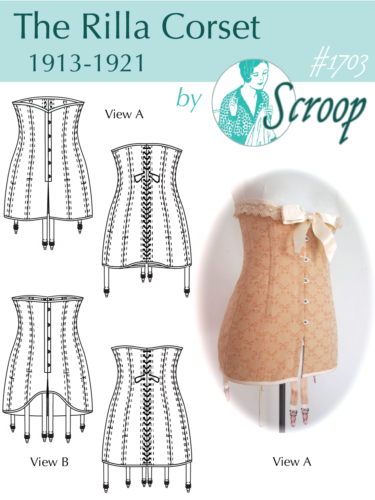
Thank you for this series! I’ve been thinking of working on an everyday wardrobe of 19teens, just to wear as clothes, so it’s really helpful to have these resources for patterns. Thanks!
I found a dress labelled circa 1905 in a local antique mall…wish I could have bought it but took some decent pictures of it. Sadly it is shattering on the shoulder while hanging on the hanger. I would be glad to share pictures of it if you are interested.
I work at a children’s farm that’s supposed to be early 1900s and I’d love to work the jobs that get to dress up. hiw ever due to the IMMENSE heat and humidity of western kansas no one dares to be HA. Even of the lightest fabrics for everything, the sweat and dust would at least ruin the stockings
What a great post!
I’ve been having a hard time placing the number of layers.
Combinations/Chemise
Corset
Corset Cover AND petticoat?
Or if you have fluffy enough chemise do you skip the petticoat? And petticoat goes over the garters? This is probably stupidly obvious to anyone not me, but it’s been throwing me for a while.
I should add, part of my confusion is that ads have gorgeous decorated chemises! And then you have a decorated lacy corset cover too? Like, don’t the lacy layers not add together well? Or are you supposed to wear a strapless chemise if you have a lacy corset cover?
It’s so cool that you’re doing a series of articles on the complete outfit, with all the resources. I can see this series becoming the definitive go-to guide for putting together a 1910s wardrobe.
I am so excited for this series, Leimomi! Thank you so much for putting the work into doing this!